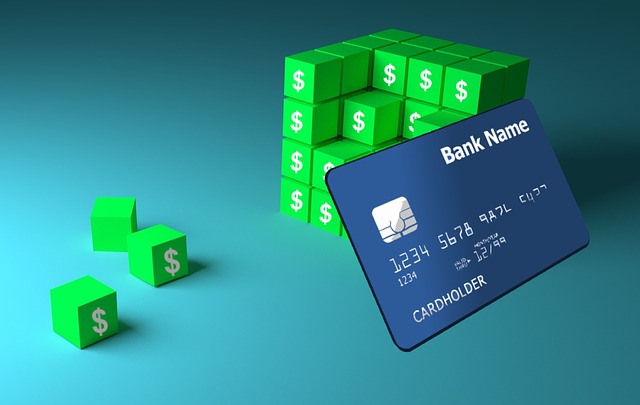Table of Contents
Why Should I Care About My Credit Score?
If you are reading this, you probably already know how important good credit is. But for those of you who are wondering, what’s the big deal? Here’s why you should be concerned about your score.
All lenders base their offer to you on your credit score, among other things such as your income and other expenses. Credit card companies, auto lenders, mortgage lenders… they all take your credit score into consideration when you apply. Those of us who have a higher score will get credit offers with a lower interest rate because we are perceived as lower-risk of default (non-payment). Those of us with lower scores can still get credit and loans, however, at a higher interest rate, because we have defaulted or paid late in the past and are perceived as higher-risk.

The upshot is, borrowing money is more expensive the lower your credit score is. It’s a catch-22 – those of us who are less likely to be able to afford to pay a higher interest rate must, and therefore are more likely to pay late or not at all because it’s unaffordable.
Do what you can to preserve and improve your credit score – it will literally pay off for you. Here are five easy tips.
1. Pay All Monthly Bills In Full and On Time
This is so important – it is number one for a reason.
Paying all bills in full and on time is the most effective way to improve your credit score. If you’ve had any late payments, you probably have already seen that they are recorded on your credit report and your score suffers as a result.
If it is difficult to pay a certain bill in full or on time, contact that entity. If it is the electric or gas company, you will likely be offered a payment plan or a change of due date. If it is your credit card company, you might get one monthly payment waived – but take care with this, interest accrues in the meantime! If it is a service provider, like your family doctor, call the office and ask for a payment plan.
No matter who your creditor is, the only thing they want from you is to get paid. It is likely they will work with you if you are honest about your struggle and your desire to make good, even if it has to be over time. If you don’t ask, you don’t get! Don’t let pride ruin your credit score.
2. Pay Off Your Credit Cards
Credit card debt is the most expensive loan you’ll ever take out, and it can easily get overwhelming and unmanageable if you only pay the minimum payment each month. This is because the interest rate on credit cards can range from 12% to 22%, or even more.
Conventional wisdom dictates that to start paying off your credit card debt, pay the most you can to the one with the highest interest rate and the monthly minimum on the others. When that first card is paid off, pay off the card with the next-highest interest rate, and so on. This process will take some time, however, imagine how great it will feel to be free of credit card debt!
If you have a large amount of credit card debt and know that you don’t have enough income to pay it off and pay your monthly fixed expenses, consider contacting a bankruptcy and debt relief attorney to schedule a free consultation and discuss your options.
3. Maintain an Emergency Fund
If you have six month’s worth of expenses in reserve, you should be able to weather most financial calamities, like unexpected medical expenses or car or home repairs. Some financial experts say that your emergency fund should be as much as nine or 12 months!
However much you decide you are comfortable with having in reserve, start saving by putting aside 10% of your income until you have that amount. So, if you make $500/week, you’ll put $50 of that aside for your emergency fund. That might seem painful, but actually, it’s going out to eat one less time each week, or maybe turning the thermostat down in the winter and up in the summer to save on heat and air conditioning, or perhaps cutting back on your cel plan or cable package.
A small cut to discretionary spending will get you there and it will feel so worth it when that first emergency occurs – because you know it will! – and you have the funds to deal with it, without relying on credit cards.
4. Perform Regular Maintenance on Home, Automobiles – and Yourself and Family Members!
Okay, that was meant to be funny. But seriously, everything needs regular care to stay in good shape. For your home systems, your car, and you and your family, if you don’t invest in regular maintenance it will cost a lot more if something breaks!
Your heat, AC, and appliances will have owner’s manuals that recommend what regular service needs to be performed, and how often. If you do not have that regular service done you are in for a big repair down the line, when something breaks or fails. And who wants to be without hot water or heat? A small expense now saves you big money and inconvenience later.
Your car requires regular oil changes as well as regular maintenance. Keep on top of this because the last thing you need is your car failing to start one day and you can’t get to work or are stranded somewhere. Again, the relatively small expense of maintaining your car will save you money down the road.
You and your family must each meet with your doctor and dentist for regular check-ups. Why? Because this way you are each screened for problems that you might not be aware or – things like an infected tooth, high blood pressure or cholesterol, or any other hidden condition that, if not treated, can turn serious – and costly!
5. Budget for Fun
Don’t be so strict with your finances that you neglect to have fun. If you are working hard to stay on top of your bills, pay down your debt, and create or maintain your emergency fund, you should not feel guilty about putting a small amount aside for fun for you and your family. It does not have to be something expensive, but a weekly movie night on the couch together, a picnic, a day at the aquarium or museum… these improve your family connections and quality of life. Isn’t that why we work and save?
About the author:

Veronica Baxter is a legal assistant and blogger in the Philadelphia area. She works frequently with David M. Offen, Esq., a busy bankruptcy lawyer in Philadelphia.

